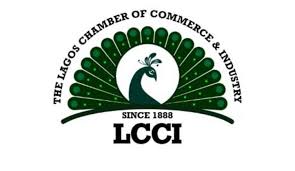The Lagos Chamber of Commerce and Industry (LCCI) has disclosed that the agriculture sector is facing severe pressure, and that escalating herder-farmer conflicts are disrupting cultivation while above-normal rainfall linked to the ongoing cycle, has caused flooding by damaging farmlands and displacing some farming communities in Nigeria.
This piece of information was given by the President of LCCI, Mr. Gabriel Idahosa, who revealed that the collective journey of quarterly engagements by his chamber, gives an opportunity to review the significant economic developments of the previous quarter and articulate perspectives for the broader business community and the government. The chamber alleged that there are challenges and distortions in fertilizer pricing and distribution, and to improve the sector, the group has called for urgent interventions including expedited disbursements to the Special Agro-Industrial Processing Zones (SAPZs), subsidised rail transport of grains from production hubs to urban centres, and a means to improve security around farmers, farmlands, and agricultural supply chains, among others.
The LCCI had recalled that in the second quarter of 2025, the global economy was weakened by United States tariffs, trade tensions, geopolitical unrest, and uncertainty. With escalating tariff wars between the United States and the European Union (EU) and Brazil, Russia, India, China, and South Africa (BRICS) member countries and partners, global trade is expected to reach an all-time low, resulting in disruption of supply chains, economic slowdown risks amid fragile growth in the EU on the back of expected retaliatory tariffs and investment climate uncertainties. In the light of recent global trade and geopolitical dynamics, the LCCI calls on the Federal Government to reconsider its foreign policy mix to ensure that Nigeria is not left behind in global affairs, and as it affects international trade.

The global economic outlook highlights a range of risks, starting with the concern that further trade fragmentation, including new tariff hikes and retaliatory actions, could intensify the growth slowdown and trigger significant disruptions in cross-border supply chains. With US President Donald Trump’s policy extra of 10% tariff on Nigeria due to its alignment with BRICS, it is hoped that the country would adopt a multi-pronged policy response that safeguards its national interest, asserts its development priorities, while avoiding being caught in great power rivalries. Nigeria is advised to pursue a non-aligned, interest-driven foreign policy by positioning BRICS membership, as a vehicle for solid economic cooperation.
The recent release of Nigeria’s rebased Gross Domestic Product figures and the Q1 2025 economic growth data with a real growth rate of 3.13% and nominal GDP now recorded at ₦372.82 trillion had made this development to offer a more comprehensive and contemporary reflection of the Nigerian economy, capturing vibrant informal activities, tech-driven enterprises, and service-oriented sectors that were previously under the radar. On the Nigeria First Policy, the chamber said it welcomed the introduction of the Nigeria First Policy as a timely, strategic response to the US tariff hikes and global trade tensions.
It believes that this policy would require addressing critical factors against productivity, including high energy costs, inadequate energy supply, inefficient transportation and logistics infrastructure, and other infrastructure. The government should align the policy with the administration’s food security agenda and encourage sub-national governments to replicate similar policies at their levels. On inflationary rate, which has reduced, the downward trend has reflected the impact of tighter monetary policy, relative stability in the foreign exchange market, and easing food prices in some regions, even though food inflation rose to 21.97% in June from 21.14% in May, implying an increase of 0.83% points.
Similarly, core inflation increased by 0.48% to 22.76% in June when compared to 22.28% in May. Despite this progress, inflation remains elevated, mainly driven by persistent food inflation, high energy costs, and structural inefficiencies in supply chains. The Central Bank of Nigeria (CBN) is, therefore, expected to maintain a cautious stance, balancing the need to contain inflation to support economic recovery. As of March 31, 2025, Nigeria’s total public debt stood at ₦149.39 trillion, reflecting a year-on-year increase of ₦27.72 trillion or 22.8%, when compared to ₦121.67 trillion recorded in the same period in 2024. The chamber admonished the government to pursue revenue diversification, improved spending efficiency, and better debt management strategies to reduce fiscal pressure and restore macroeconomic stability.
In the final analysis, the LCCI admits that Nigeria’s economy continues to exhibit remarkable resilience and innovation even though, there appears to be a delay in granting digital banking licences to several credible fintech operators, leading to capital flight and slowed innovation. The oil and gas sector’s performance had been affected by structural inefficiencies, insecurity, and delayed policy execution. The recent frequent line tripping and system outages highlight persistent instability in transmission infrastructure and generation shortfalls, and reiterated an urgent need to accelerate Phase II of the National Mass Metering Programme by empowering sub-national governments to develop independent and hybrid mini-grids, to scale decentralised energy solutions.

